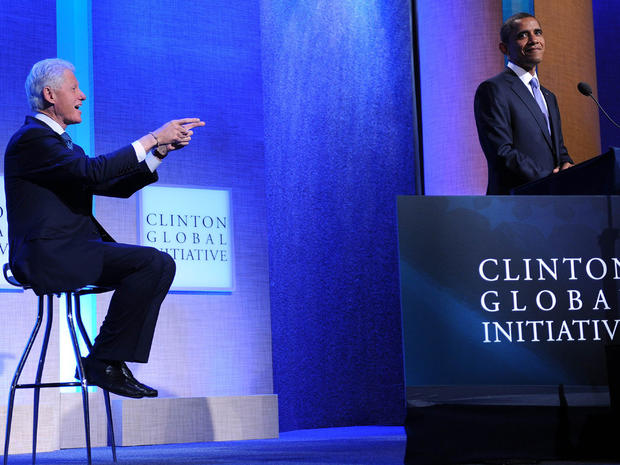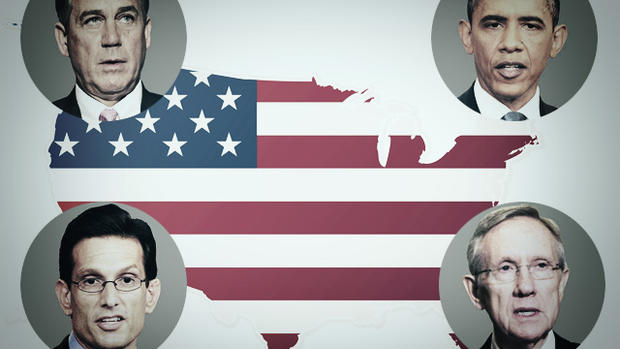Bill Clinton: I would raise the debt limit and "force the courts to stop me"
Former President Bill Clinton said he would raise the nation's legal borrowing limit on his own if he had to and "force the courts to stop me" in order to prevent the United States from defaulting on its debt obligations for the first time in history.
Clinton said he thinks President Obama and Republicans on Capitol Hill are going to cut a deal before August 2, "and that's smart."
But "if it came to that," he would raise the debt ceiling using powers granted under the 14th amendment of the Constitution. The amendment says that the validity of the public debt shall not be questioned.
Treasury Secretary Timothy Geithner quoted from a copy of the amendment, which he pulled from his pocket, in a May interview with Politico, arguing that the clause undermines the Republican negotiating position that default is an option. Mr. Obama sidestepped the question in a subsequent press conference.
"I think the Constitution is clear and I think this idea that the Congress gets to vote twice on whether to pay for [expenditures] it has appropriated is crazy," Clinton said in an interview with The National Memo columnist Joe Conason.
Most economists, including Federal Reserve Board Chairman Ben Bernanke, and the Obama administration have warned of economic calamity if the $14.3 trillion debt ceiling is not raised in two weeks.
Lawmakers from both parties want to use the threat of that deadline to come to a larger agreement that would reduce the deficit going forward. But that deal has been elusive.
Clinton said that is partly because Americans generally think the debate is about raising the limit on future spending, not on money already out the door.
"The reason that raising the debt limit is so unpopular is that people think you're voting to keep [increasing] deficit spending, instead of voting to honor obligations that were already incurred," he said.
"I think [the Gingrich Republicans] figured I'd be smart enough to explain to the American people that they were refusing to pay for the expenses they had voted for when Ronald Reagan and George H.W. Bush were president. And that would make 'em look bad," the president said, explaining why he thinks Republicans in the mid-1990s did not force the issue on him the way the current Republicans have on Mr. Obama.
Special Report: America's debt battleMeanwhile, Republicans in the House of Representatives plan to vote later Tuesday on a bill that would cut $2.4 trillion from the deficit over the next decade, even though that plan has no chance of becoming law as it is contingent on changing the U.S. Constitution to require balanced budgets in the future.
The "cut, cap and balance" legislation is unlikely to pass the Democratically-controlled Senate and Mr. Obama on Monday said he would veto it if it did. The bill would also cap government spending at 18 percent of economic output over the next 10 years, as much as $111 billion in 2012 alone.
The White House and congressional Democrats are pushing for a more "balanced approach," which would include both spending cuts and higher revenue to the government.
A CBS News poll released Monday found that 66 percent of Americans believe that the deal to raise the debt ceiling should include both spending cuts and tax increases.
Only 28 percent said they thought the deal should contain spending cuts exclusively, and a mere three percent wanted it to include tax increases only.

